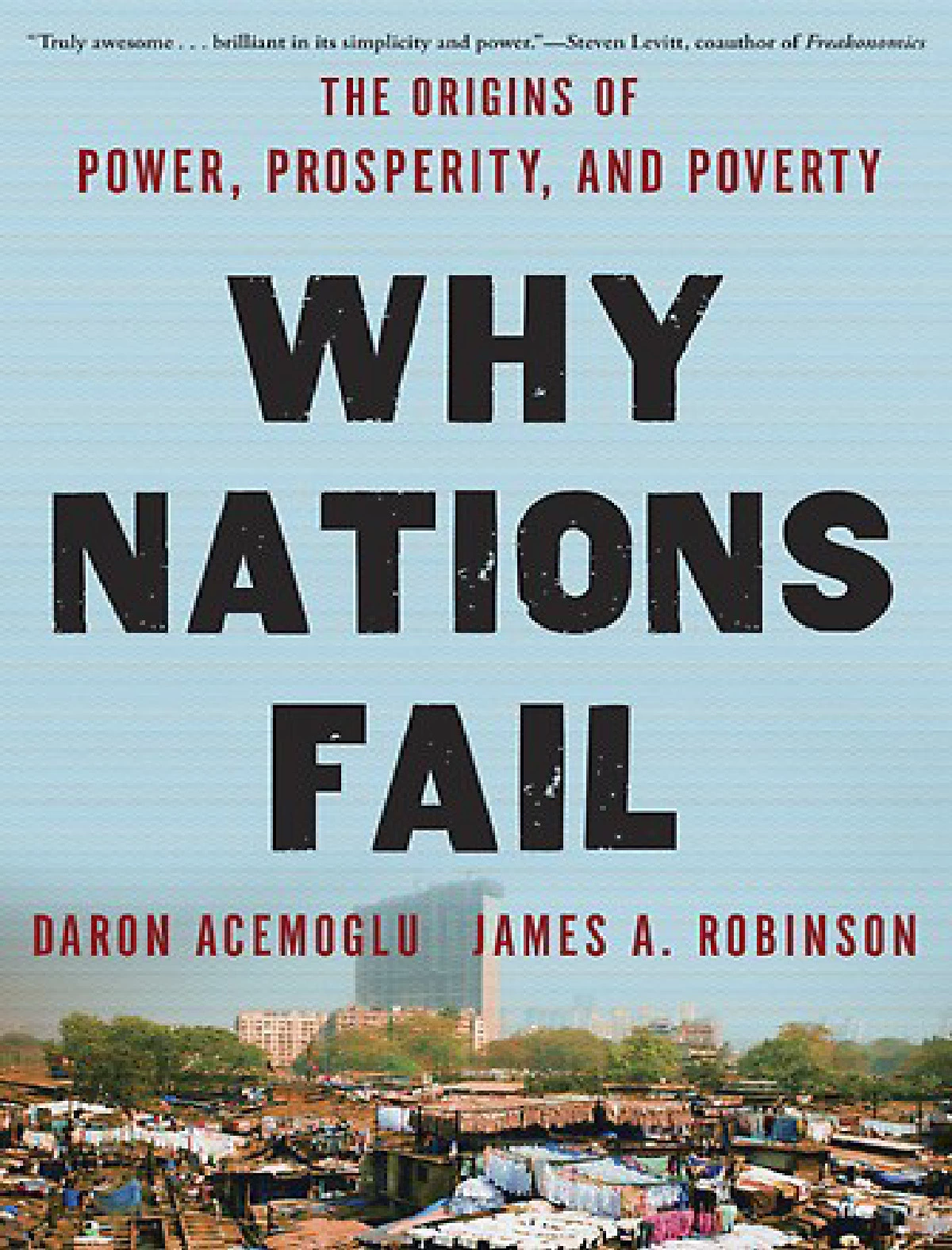
Why Nations Fail Book
Why Nations Fail: The Origins of Power, Prosperity, and Poverty” is a highly influential book written by Daron Acemoglu and James A. Robinson, first published in 2012. The book delves into the reasons why some nations achieve economic prosperity while others remain trapped in poverty. The authors argue that the success or failure of nations is largely determined by the quality of their political and economic institutions, rather than factors like geography, culture, or natural resources.
Key Themes and Arguments
- Inclusive vs. Extractive Institutions
- Inclusive Institutions: Nations with inclusive political and economic institutions provide opportunities for a broad section of society, encouraging innovation, economic participation, and entrepreneurship. These institutions protect property rights, enforce the rule of law, and ensure political accountability. Examples include the United States, the United Kingdom, and other democratic, developed nations.
- Extractive Institutions: In contrast, extractive institutions concentrate power and wealth in the hands of a small elite. These nations tend to exploit their resources without distributing the benefits to the majority of the population, which stifles innovation and economic growth. Examples include North Korea, Zimbabwe, and historically, colonial regimes in Africa and Latin America.
- The Role of Political Centralization
- The authors emphasize that for a nation to be successful, it must have a centralized state that can enforce laws and maintain order. However, political centralization must be coupled with inclusive political institutions to avoid the concentration of power in a small elite. When political centralization is paired with extractive institutions, it leads to oppression and economic stagnation.
- Creative Destruction and Economic Growth
- A key argument is that nations with inclusive institutions embrace “creative destruction”, a process where old industries and ways of doing things are replaced by new, innovative ideas and technologies. This process drives economic growth, but it is resisted by elites in extractive systems because it threatens their power and wealth.
- In extractive economies, elites often stifle technological progress and innovation to maintain control. This can lead to long-term economic decline. For example, the Ottoman Empire resisted industrialization to preserve the status quo, contributing to its eventual decline.
- Historical Examples
- The authors draw on various historical examples to support their theory. For instance, they compare the development of North and South Korea after the Korean War. While both countries started at similar levels of poverty, North Korea’s extractive regime led to economic disaster, while South Korea’s more inclusive institutions fostered prosperity.
- Another example is the colonization of the Americas. In North America, early settlers, especially in places like Massachusetts, established more inclusive institutions, which laid the foundation for democracy and economic growth. In contrast, the Spanish and Portuguese colonies in Latin America implemented highly extractive systems, which hampered long-term development.
- The Iron Law of Oligarchy
- One of the book’s more pessimistic points is the idea of the Iron Law of Oligarchy, which suggests that even in nations with inclusive institutions, elites tend to reassert control over time. While inclusive institutions lead to growth, there is always a risk that those in power will try to manipulate the system for their own benefit.